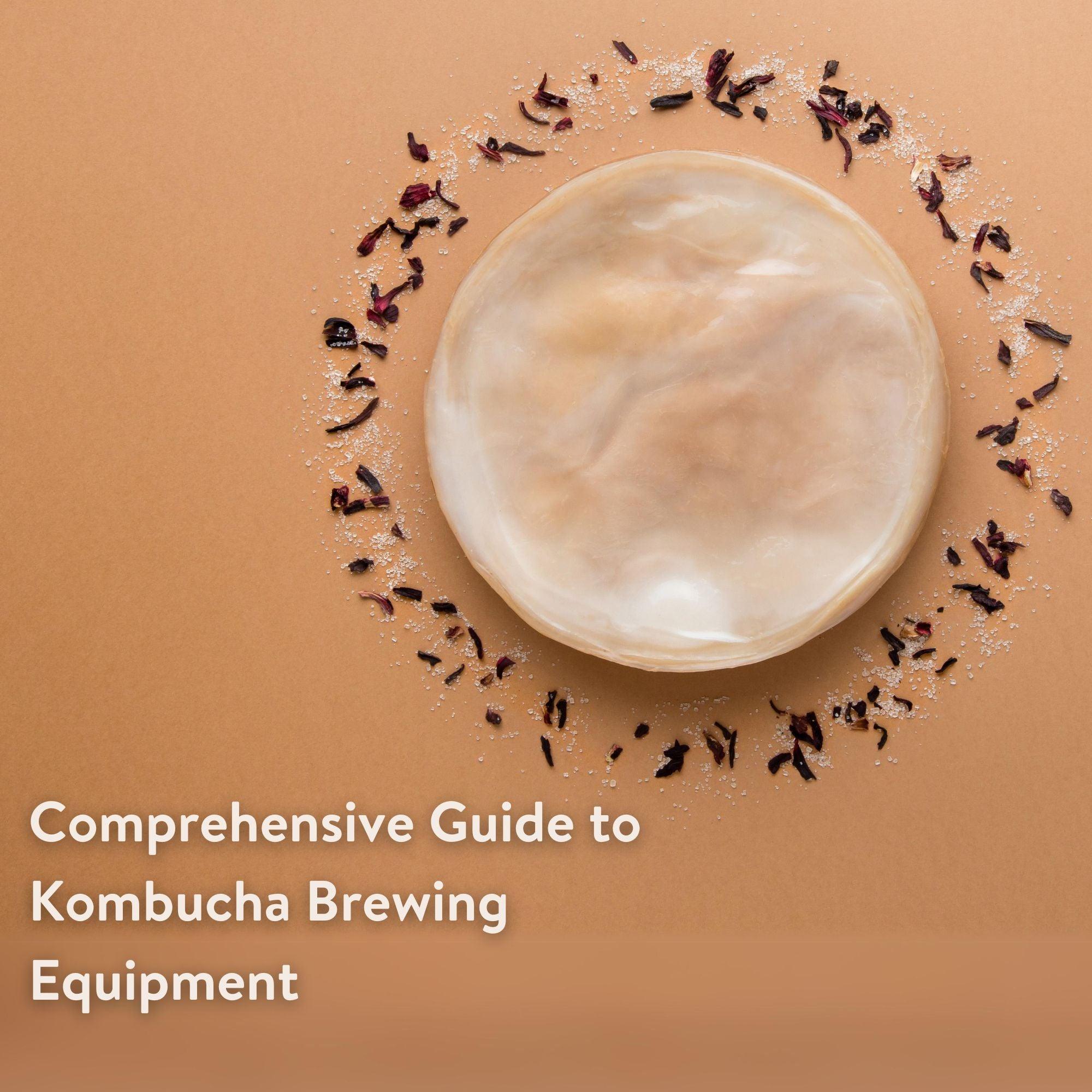Embark on a journey with us as we introduce you to a centuries-old superfood that’s starting to take the modern health world by storm - kefir. This fermented, probiotic-rich drink is brimming with health benefits and can be a versatile addition to any diet. Let's unravel the wonders of kefir together.
The Origins of Kefir: A Glimpse Into History
Kefir has a deep-rooted history that dates back thousands of years, originating in the Eastern European and Caucasus regions(1). The word "kefir" itself comes from the Turkish word "keif", which translates to "good feeling." It's a fitting moniker considering the numerous health benefits associated with this humble fermented drink(1)
Fascinating folklore surrounds the discovery of kefir. It is said that kefir grains were initially a gift from Prophet Mohammed to the Orthodox people of the Caucasian Mountain, who zealously guarded the mysterious grains and their fermentation method for centuries (2). Passed down through generations, the kefir production process has retained its authenticity, even as it gained acceptance and popularity worldwide.
The Odyssey of Kefir
Kefir's story begins in the North Caucasus Mountains, where legend attributes its origin to the Orthodox Christians. Deemed as a gift from the gods, it was traditionally made in leather bags, which were hung near a doorway. Every passerby would give the bag a knock, helping to mix the contents and promote fermentation(1).
This historical beverage reached the scientific community in the 19th century when Nobel laureate Élie Metchnikoff noted its potential health benefits. His pioneering work on the immune system and probiotics is the foundation of our current understanding of kefir's health-enhancing properties(2)
Crafting Kefir: An Art Perfected Over Centuries
Our journey begins with tiny, miracle-workers called kefir grains. Despite their name, these aren't grains like wheat or rice, but rather complex microbial colonies. They're gelatinous, slightly slimy clusters that bear a striking resemblance to tiny cauliflowers. Filled with proteins and exopolysaccharides (a type of carbohydrate), these grains house a myriad of beneficial bacteria and yeasts, all living together in perfect harmony
To create kefir, these grains are added to a substrate - usually milk or water. Then, the magic of fermentation takes over. Left at a cozy 20-25 °C, the concoction ferments over the next 18-24 hours. The result is a tart, slightly bubbly beverage that offers a symphony of flavors and, of course, a myriad of health benefits
Dairy Kefir vs. Water Kefir: A Tale of Two Brews
While the kefir family is close-knit, it does house two slightly different members – Dairy Kefir and Water Kefir. The difference lies in the choice of substrate for fermentation. Dairy Kefir plays with milk, while Water Kefir prefers a sugary solution. This choice affects the end product's microbial diversity and the health-promoting compounds.
Kefir vs. Yogurt: The Probiotic Showdown
At first glance, kefir and yogurt might seem like identical twins. They're both fermented dairy products brimming with probiotics. However, the twins are not identical but fraternal. The difference lies in the fermentation process and the diversity of probiotics they carry. Kefir, with its unique fermentation process, boasts a larger variety of beneficial probiotic strains compared to yogurt.

Understanding Kefir: The Science Behind the Fermentation Process
Kefir is not just your average fermented drink. The secret behind its unique properties lies in the "kefir grains" used in its fermentation process (3) Kefir grains, despite the name, are not actual grains. These gelatinous structures, resembling tiny cauliflower florets, are natural matrices of proteins and exopolysaccharides known as kefiran (4)
The fermentation process is a fascinating dance of biology. When introduced to milk or water, the microorganisms within the kefir grains (a symbiotic mix of bacteria and yeasts) begin breaking down the sugars, turning them into alcohol, carbon dioxide, and organic acids. This process transforms the substrate into a probiotic-rich, tangy beverage, slightly effervescent due to the released carbon dioxide (5)
Unveiling Kefir's Nutritional Composition
Kefir boasts a rich nutritional profile, contributing a balance of proteins, fats, and carbohydrates, in addition to essential vitamins and minerals. The proteins in kefir are easily digestible, given the fermentation process that breaks down the complex protein structures (5)
The carbohydrate content primarily includes lactose, which reduces significantly during fermentation, making kefir a potentially suitable option for those with lactose intolerance. Kefir also provides an array of essential vitamins (like B-vitamins and vitamin K) and minerals (like calcium and magnesium), bolstering its nutritional values (6)
A Nourishing Ally for Your Health Journey
Kefir is no ordinary fermented drink. Its potent combination of beneficial microorganisms, essential nutrients, and bioactive compounds gives it a unique edge in promoting health and well-being (2) Its health-promoting potential can be traced back to three main aspects:
-
Nutritional Composition: Kefir is a nutrient-dense food. It offers a balance of proteins, fats, and carbohydrates, along with essential vitamins and minerals (3)This makes it a wholesome addition to your daily diet, providing a variety of nutrients required for your body's optimal functioning.
-
Probiotic Power: Kefir's real superpower lies in its wealth of probiotics - beneficial bacteria and yeasts that support gut health. A healthy gut microbiome is now recognized as a cornerstone of overall health, impacting everything from digestion to immunity and even mood (4)
-
Bioactive Compounds: Kefir also contains bioactive compounds, like organic acids and peptides, which have been associated with various health benefits, including antimicrobial, anti-inflammatory, and anti-tumor effects (5)
Table 1: The Nutritional Profile and Health Benefits of Kefir
| Nutritional Composition (6) | Associated Health Benefits (7) |
|---|---|
| 80-90% moisture | Hydrating, especially beneficial in hot climates or for those who need extra fluid intake |
| 0.2% lipids | Contributes to satiety, aids in nutrient absorption |
| 3.0% proteins | Essential for growth and repair of tissues |
| 6.0% sugars | Provides quick energy |
| 0.7% ash | Minerals essential for various bodily functions |
| Rich in essential amino acids | Building blocks of proteins |
| Abundance of vitamins and folic acid | Supports various metabolic processes |
| Bioactive peptides | Regulate various physiological functions |
Delving into Kefir's Health Benefits

The health benefits of kefir are vast and backed by an expanding body of scientific literature. Here's a detailed look at some key areas where kefir can contribute to your overall health:
Digestive Health
The probiotics in kefir help balance the gut microbiota, promoting healthier digestion. They can potentially alleviate gastrointestinal disorders like Irritable Bowel Syndrome (IBS) and improve lactose digestion (8) (9)
Immune Function
Kefir's probiotics can strengthen the immune system by enhancing the gut's barrier function, modulating immune responses, and suppressing the growth of harmful bacteria (10)
Heart Health
Research suggests that kefir may help lower blood pressure and cholesterol levels, potentially reducing the risk of heart disease (11)
Bone Health
As a good source of calcium and vitamin K2, kefir can contribute to maintaining bone health and potentially help prevent osteoporosis (12)
Weight Management
The proteins in kefir can increase satiety, potentially aiding weight management. Additionally, its probiotics may influence weight regulation (13)
Anti-Carcinogenic Potential
Preliminary research indicates that certain compounds in kefir may have anti-carcinogenic effects, though more studies are needed to substantiate these claims (14)
Kefir's myriad health benefits are continually backed by an expanding body of scientific literature. A detailed look into key areas where Kefir contributes to health reveals a remarkable spectrum:
| Health Aspect | Research Progress |
|---|---|
| Digestive Health | The probiotics in Kefir balance the gut microbiota, promoting healthier digestion (9) |
| Immune Function | Kefir's probiotics can strengthen the immune system by enhancing the gut's barrier function (10) |
| Heart Health | Research suggests that Kefir may help lower blood pressure and cholesterol levels (11) |
| Bone Health | As a good source of calcium and vitamin K2, Kefir can contribute to maintaining bone health (12) |
| Weight Management | The proteins in Kefir can increase satiety, potentially aiding weight management (13) |
| Anti-Carcinogenic Potential | Preliminary research indicates anti-carcinogenic effects of certain compounds in Kefir (14) |
Beyond Gut Health: The Extra Perks of Kefir
Kefir doesn't stop at gut health. Its benefits extend far and wide. Research has associated Kefir with antimicrobial, anti-tumor, anti-carcinogenic, anti-hypertensive, and anti-diabetic properties. Some studies even suggest that it could play a significant role in managing and preventing diseases like COVID-19. Kefir seems to be the friend who keeps on giving!
Unleashing the Versatility of Kefir: More Than Just a Drink
Kefir: Your New Kitchen Companion

Now, don't be intimidated by all this science. Remember, we're about making health simple and enjoyable. Incorporating kefir into your diet can be as easy as replacing your milk or water in recipes with kefir. Or, drizzle it over your morning granola or use it as a base for your smoothie. You could even get creative and use it as a salad dressing or a tangy marinade for your meats!
Embracing kefir doesn't just mean sipping on a new type of fermented beverage. Thanks to its versatile nature, you can incorporate it into your diet in multiple exciting ways.
-
Traditional Applications: Kefir can be a refreshing drink on its own, but why stop there? In South Asian cultures, similar fermented drinks like lassi and chaas are often enjoyed with meals. You could substitute these with kefir for a probiotic-rich alternative.
-
Culinary Adventures: Kefir can add a tangy twist to your smoothies or salad dressings. It can also replace milk or water in baking recipes, adding a moist texture and a subtle tanginess.
-
Innovative Recipes: Feeling adventurous? Try kefir in traditional dishes, such as the Indian curry 'kadhi,' which typically uses yogurt. Kefir could provide a new flavor profile and a probiotic boost.
-
Vegan-Friendly Variations: If you're following a vegan diet, fear not. Kefir can also be made using plant-based milks like almond, coconut, and soy. Each variant comes with its unique flavor, opening up new avenues for culinary exploration.
Kefir in Your Health Journey: An Invitation

Kefir invites us to explore a world where food is not merely sustenance but a pathway to better health. Its historical heritage, unique fermentation process, and proven health benefits make it a fascinating addition to any diet. We hope that this exploration has inspired you to consider kefir as part of your health journey.
Remember, a health journey is personal and unique, just like you. It's about making conscious choices that serve your well-being, guided by knowledge, curiosity, and self-compassion. And we're here to support you in that journey, making the complex world of health and nutrition accessible, enjoyable, and empowering. After all, health is a journey, not a destination, and every step you take matters.
Citations
-
Leite AM, Miguel MA, Peixoto RS, et al. Microbiological, technological and therapeutic properties of kefir: a natural probiotic beverage. Braz J Microbiol. 2013;44(2):341-349. doi:10.1590/S1517-83822013000200001
-
Rattray FP, O’Connell MJ. Fermented milks and milk products as functional foods – a review. Int J Dairy Technol. 2011;64:1–12. doi:10.1111/j.1471-0307.2010.00630.x
-
Prado MR, Blandón LM, Vandenberghe LPS, et al. Milk kefir: composition, microbial cultures, biological activities, and related products. Front Microbiol. 2015;6:1177. doi:10.3389/fmicb.2015.01177
-
Garrote GL, Abraham AG, De Antoni GL. Chemical and microbiological characterisation of kefir grains. J Dairy Res. 2001;68(4):639-652. doi:10.1017/S0022029901005214
-
Guzel-Seydim ZB, Seydim AC, Greene AK, Bodine AB. Determination of organic acids and volatile flavor substances in kefir during fermentation. J Food Composition Anal. 2000;13:35–43. doi:10.1006/jfca.2000.0874
-
Farnworth ER. Kefir – a complex probiotic. Food Sci Technol Bull. 2006;2:1–17. doi:10.1616/1476-2137.14141
-
Zajac AE, Adams AS, Turner J. A systematic review and meta-analysis of probiotics for the treatment of allergic rhinitis. Int Forum Allergy Rhinol. 2015;5(6):524-532. doi:10.1002/alr.21492
-
Azad MAK, Sarker M, Li T, Yin J. Probiotic Species in the Modulation of Gut Microbiota: An Overview. Biomed Res Int. 2018;2018:9478630. doi:10.1155/2018/9478630
-
Solati Z, Moghadasian MH. Cardiovascular benefits of probiotics: a review of experimental and clinical studies. Food Funct. 2016;7(2):632-642. doi:10.1039/c5fo01190f
-
Lei M, Guo C, Wang D, et al. The effect of probiotic Lactobacillus casei Shirota on knee osteoarthritis: a randomised double-blind, placebo-controlled clinical trial. Benef Microbes. 2017;8(5):697-703. doi:10.3920/BM2016.0194
-
Aragon-Alegro LC, Konta EM, Suzuki K, et al. Potential of kefir as a dietetic beverage for patients with diabetes: Evaluation of glycemia, intestinal microbiota and metabolic parameters in rats. Nutr Diet. 2018;75(4):405-411. doi:10.1111/1747-0080.12409
-
Abdulla A. A Review on the Applications of Kefir in Oncology. J Cancer Sci Ther. 2019;11(1):218-224. doi:10.4172/1948-5956.1000605
-
Rosa DD, Dias MM, Grześkowiak Ł, Reis SA, Conceicao LL, Peluzio M. Milk kefir: nutritional, microbiological and health benefits. Nutr Res Rev. 2017;30(1):82-96. doi:10.1017/S0954422416000275
-
Maeda H, Zhu X, Omura K, Suzuki S, Kitamura S. Effects of an exopolysaccharide (kefiran) on lipids, blood pressure, blood glucose, and constipation. Biofactors. 2004;22(1-4):197-200.



